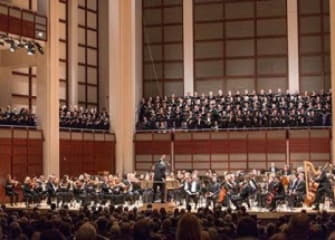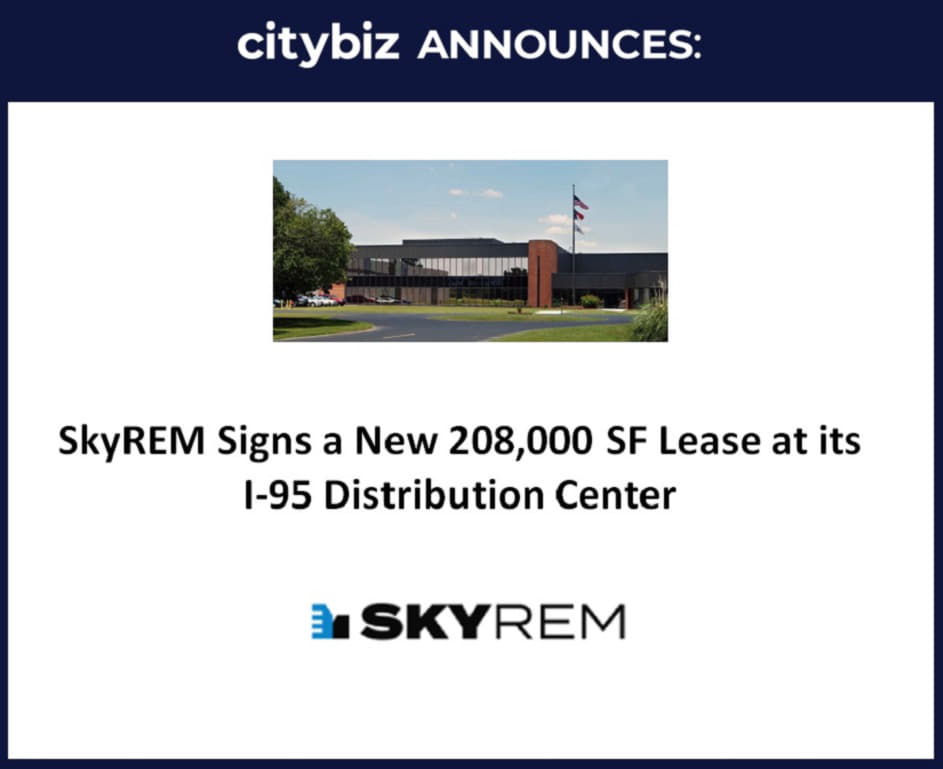
Beethoven’s Symphony No. 9 is a cultural icon, recognized the world over by people young and old, regardless of knowledge or experience with classical music. TheNorth Carolina Symphony, under the direction of Music Director Grant Llewellyn, performs the famous “Choral” Symphony this month with the North Carolina Master Chorale and stellar vocal soloists Rebecca Evans, Paula Murrihy, Anthony Dean Griffey, and Reginald Smith, Jr. Four performances will take place in Raleigh and Wilmington, April 20 through 23.
The Symphony No. 9 was Beethoven’s final and most profound symphony and many consider it to be the greatest piece of music ever composed—a fact even more remarkable considering that Beethoven was entirely deaf when he wrote it. He broke the boundaries of what symphonic form could be, presenting a work that was more extensive in length and scope, called for a larger orchestra, and placed greater technical demands on musicians than anything that came before it.
The greatest innovation comes in the final movement when Beethoven introduces a chorus and vocal soloists—something that had never been done in a symphonic work to that point. The text that is sung comes from Friedrich Schiller’s poem Ode to Joy, proclaiming hope for universal brotherhood. Beethoven sets these idealistic words to a straightforward five-note tune—simple enough that it can be sung by anyone, perhaps reinforcing the concept of unity. Yet, throughout the course of the movement, Beethoven expands on this tune in revolutionary ways, creating a musical spectacle that matches the grand scale of the message in Schiller’s poetry.
Hearing and interpreting Beethoven’s Symphony No. 9 is a deeply personal experience. “Beethoven’s Ninth has a unique and individual appeal to everyone who listens to it and everyone who attempts to perform it,” says Grant Llewellyn. “I say ‘attempts to perform’ because it involves both technical and emotional struggle. And there’s something about the sheer struggle that’s required to perform the finale that creates part of the thrill for the audience.”
Beethoven suggests the limitless possibilities of the symphony, and as a result, the limitless possibilities for humanity. It became, and has remained, the sounding bell of social change and emotional hope.
The program opens with Richard Strauss’ Metamorphosen, which draws from another Beethoven symphony: his Third, “Eroica.” The theme from the funeral march of the “Eroica” permeates Metamorphosen and transforms gradually throughout this work written for the unique combination of 23 solo strings. Through Metamorphosen, one of Strauss’ last works, he laments the devolution of civilization to a more primitive state, and specifically, Germany’s physical and cultural ruin in the mid-20th century. Followed by Beethoven’s eternally optimistic proclamation in the Ninth Symphony, we are reminded that hope is never lost.
The North Carolina Symphony expresses its appreciation to April 22 Concert Sponsor Smith Anderson and April 22 Concert Sponsors Mr. & Mrs. Edward O. Woolner for their support.
North Carolina Symphony
Classical Series
Beethoven’s Ninth
Thursday, April 20, 2017 at 7:30 pm
Meymandi Concert Hall
Duke Energy Center for the Performing Arts (Raleigh)
Friday & Saturday, April 21 & 22, 2017 at 8:00 pm
Meymandi Concert Hall
Duke Energy Center for the Performing Arts (Raleigh)
Sunday, April 23, 2017 at 7:30 pm
Wilson Center
Cape Fear Community College (Wilmington)
PERFORMERSNorth Carolina Symphony
North Carolina Master Chorale
Rebecca Evans, soprano
Paula Murrihy, mezzo-soprano
Anthony Dean Griffey, tenor
Reginald Smith, Jr., baritone
Grant Llewellyn, conductor
PROGRAM
Stauss: MetamorphosenBeethoven: Symphony No. 9 in D Minor, “Choral” TICKETS START AT $18
Online: ncsymphony.org (TicketMaster fees apply)
By phone: 919.733.2750 ($8 processing fee applies)
In-person:
NCS State Headquarters, 3700 Glenwood Ave., Suite 130, Raleigh (No processing fee)
Wilson Center, 701 North Third St., Wilmington (No processing fee)
About the North Carolina Symphony
Founded in 1932, the North Carolina Symphony (NCS) is a vital and honored component of North Carolina's cultural life. Its 175 concerts and events annually are greeted with enthusiasm by adults and schoolchildren in more than 90 North Carolina counties—in communities large and small, and in concert halls, auditoriums, gymnasiums, restaurants, clubs, and outdoor settings. The Symphony’s 66 full-time professional musicians perform under the artistic leadership of Music Director Grant Llewellyn.
NCS’s state headquarters venue is the spectacular Meymandi Concert Hall at the Duke Energy Center for the Performing Arts in downtown Raleigh. The Symphony’s service across the state includes series in Chapel Hill, Fayetteville, New Bern, Southern Pines, and Wilmington, as well as the Summerfest series at its summer home, the outdoor Koka Booth Amphitheatre in Cary.Collaborating with performers that range from classical artists, to banjo players, to jazz bands,NCS brings some of the world’s greatest talents to North Carolina.Committed to engaging students of all ages across North Carolina, NCS leads the most extensive education program of any U.S. orchestra. In alignment with the curriculum set by the North Carolina Department of Public Instruction, the Symphony provides training and resources for teachers, sends small ensembles into classrooms, and presents full-orchestra Education Concerts experienced by more than 52,000 4th and 5th graders each year. Music Discoveryfor preschoolers combines music with storytelling, and at the middle and high school levels, students have opportunities to work directly with NCS artists and perform for NCS audiences.
NCS is dedicated to giving voice to new art, and has presented 47 U.S. or world premieres in its history. In March 2017, NCS appeared at The John F. Kennedy Center for the Performing Arts in Washington, D.C., as one of four orchestras chosen for the inaugural year ofSHIFT: A Festival of American Orchestras—an honor that recognized the Symphony’s innovative community partnerships and creative programming that inspires increased interest in new music.
The first state-supported symphony in the country, NCS performs under the auspices of the North Carolina Department of Natural and Cultural Resources.






